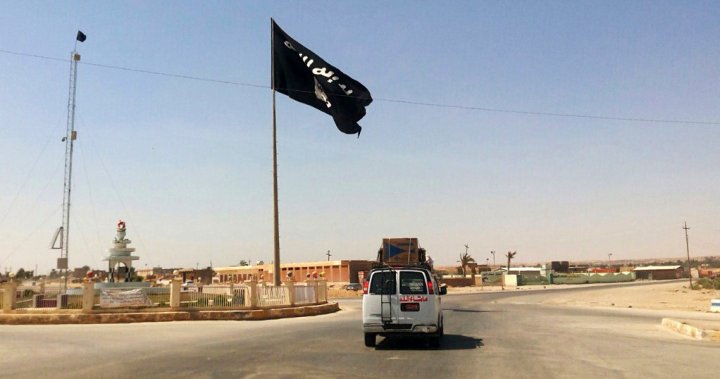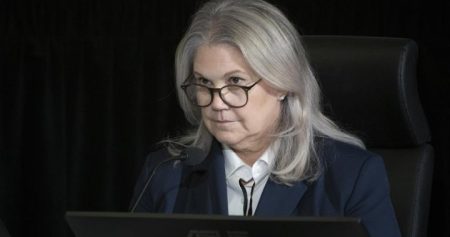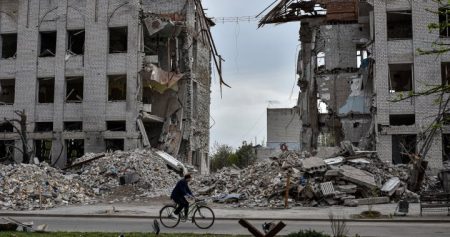A 19-year-old Yazidi woman, who sought refuge in Winnipeg, Canada, in 2017 after escaping the horrors of ISIS captivity in northern Iraq, found herself facing a new nightmare. Having endured the trauma of sexual slavery under ISIS, she allegedly became the victim of sexual assault by Hadji Hesso, the executive director of the Yazidi Association of Manitoba, an organization established to support Yazidi refugees like herself. The irony of this situation is profound: a man entrusted with aiding victims of sexual violence allegedly became a perpetrator himself, betraying the trust of the very community he was meant to serve. This incident raises serious questions about power dynamics, accountability within community organizations, and the ongoing vulnerability of refugee populations.
The young woman’s story began in 2014 when ISIS militants attacked her village in Sinjar, Iraq. She, along with her family, witnessed unspeakable atrocities, including executions and abductions. Women and girls were particularly targeted, forced into sexual slavery by ISIS fighters. After enduring this horrific ordeal, her family sought safety in Canada, arriving in Winnipeg in 2017, hoping to find peace and rebuild their lives. Initially, the Yazidi community in Winnipeg welcomed them, providing support through the newly formed Yazidi Association of Manitoba, led by Hesso. The association played a vital role in assisting Yazidi refugees, helping them with housing, schooling, and navigating the complexities of settling in a new country. This support was particularly crucial given the acute trauma experienced by the Yazidi refugees, many of whom arrived directly from ISIS captivity.
Hesso, the accused, held a prominent position within the Yazidi community and had established relationships with government officials, including cabinet ministers and MPs. He advocated for the resettlement of Yazidi refugees, highlighting their vulnerability and the need for support. His organization was lauded for its work, receiving recognition in the Manitoba legislature. However, behind this façade of respectability, Hesso allegedly engaged in predatory behavior towards the young woman, exploiting her vulnerability and the power imbalance inherent in their relationship. The alleged assaults occurred in a community facility, where Hesso reportedly made unwanted advances and touched her inappropriately. He then allegedly sent her a sexually explicit text message, further compounding the abuse.
The young woman bravely reported the incidents to her teachers, who subsequently contacted the police. Hesso was arrested and charged with sexual assault, but was released on an undertaking. Disturbingly, despite the serious charges against him, he attended the Mayor’s Ball the following night, highlighting the disconnect between his public persona and the allegations against him. His subsequent arrests for breaching bail conditions and allegedly threatening the victim further underscore the gravity of the situation and raise concerns about his disregard for the legal process. The young woman’s courage in coming forward despite alleged threats and attempts to silence her is remarkable.
The revelation of Hesso’s alleged actions shocked many within the Yazidi and wider community, who had placed their trust in him as a leader and advocate. The incident underscores the importance of vetting individuals in positions of power within community organizations and ensuring accountability mechanisms are in place to prevent abuse. The fact that the Yazidi Association of Manitoba continued to operate despite being dissolved by the provincial government for failing to file annual reports raises further questions about oversight and transparency within the organization. The provincial government’s statement that the organization was dissolved underscores the lack of regulatory compliance and potentially raises questions about its financial practices and governance.
This case is a tragic illustration of how vulnerable populations, particularly refugees fleeing conflict and persecution, can be re-traumatized in their new homes. It highlights the need for ongoing support and protection for refugees, as well as robust systems for addressing allegations of abuse within community organizations. While the actions of one individual should not tarnish the positive contributions of the Yazidi Association of Manitoba, this incident serves as a stark reminder of the importance of vigilance and the need to hold individuals accountable for their actions, regardless of their position or status. The young woman’s plea for increased safety and awareness resonates deeply, emphasizing the need for continuous efforts to create safe and supportive environments for all, particularly those who have already endured so much.










